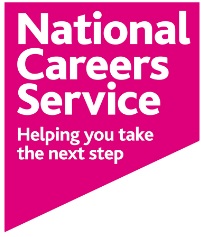Writing a CV can be stressful, especially if you’re starting from scratch. Not sure where to start? Here are our tips on how to write a great CV.
- The most important thing to remember is that your CV has only one main objective – that is to generate an interview. It is an expression of who you are and what you have to offer and contribute.
- It is your personal brochure, and as such the message about your “features” (strengths and talents) must be clear and easily understood. Don’t expect the reader to “read between the lines”.
- It must have maximum impact for the reader in a matter of seconds. Here the first impression counts. Firstly, it is your name that you want them to remember.
- Then use the first half of the first page to demonstrate how you meet what they are looking for – so play back to them the key words that they used in the job advert (e.g. project management experience) and use them in bullet points, with supporting evidence, quantified and specific wherever possible.
- The rest of the CV is there to support or back up this initial “thrust”. Your most recent and most relevant experience is what is needed here – not your whole life history.
- The emphasis of your CV should be on what you have to offer – i.e. future focused.
- Use plenty of space, with wide margins. The visual layout is important. Ensure a good balance between words and space. Relevant information should be easily accessible and well sign-posted with clear headings.
- Avoid the use of “l”. Try to use key words or ‘action-words’ e.g. designed, improved, successfully, generated, maintained.
- Your CV can focus either on work history or be entirely skill based, depending on what is most appropriate.
- Preparing CVs takes time. The more thought given, the greater the possibility of success. Each application or job/role opportunity will require a different and customised or tailor-made CV.
- More detail is better than not enough in earlier drafts. It is easier to cut something than to build it up, but keep the final version down to two pages.
- Don’t be too modest. The potential employer needs to know how good you are. If you don’t tell them, no-one else will.
- No need to list your referees, salary, marital details, nationality or DOB.
- Don’t forget your achievements and quantify these where you can.
- Avoid jargon, language and abbreviations which are particular to your current organisation, profession or job unless it is directly relevant to the new role.
- You can put your contact details at the bottom of the second page or in a header/footer – they will find them if they need to contact you.
You can always add emphasis to your main points in a carefully worded covering letter, preferably to a named person.
The National Careers Service provides free, up to date, impartial information, advice and guidance on careers, skills and the labour market in England to anyone aged 13 and upwards. To speak to a National Careers Service adviser, call 0800 100 900 or use our webchat (8:00am to 10:00pm, 7 days a week.)


